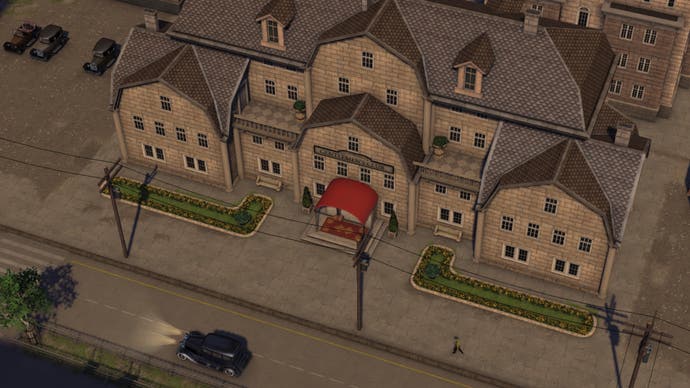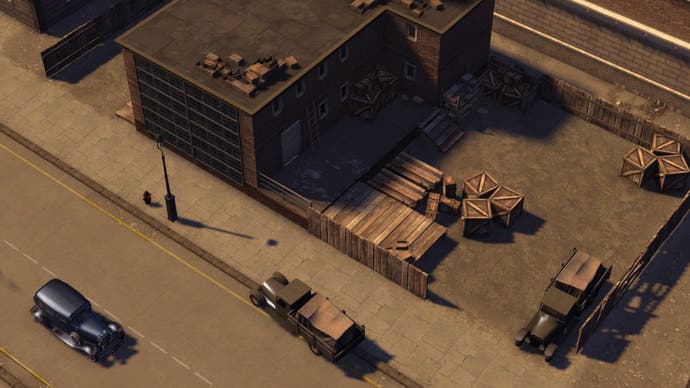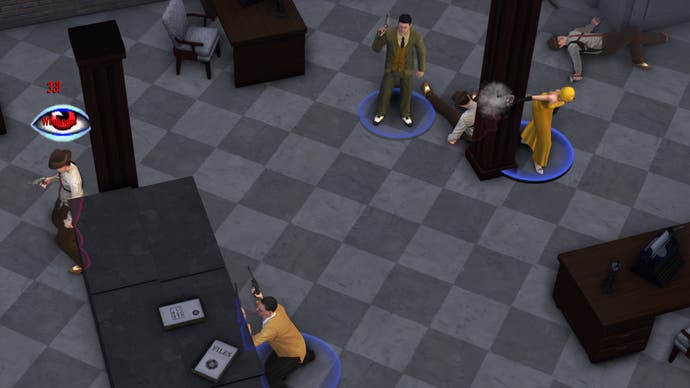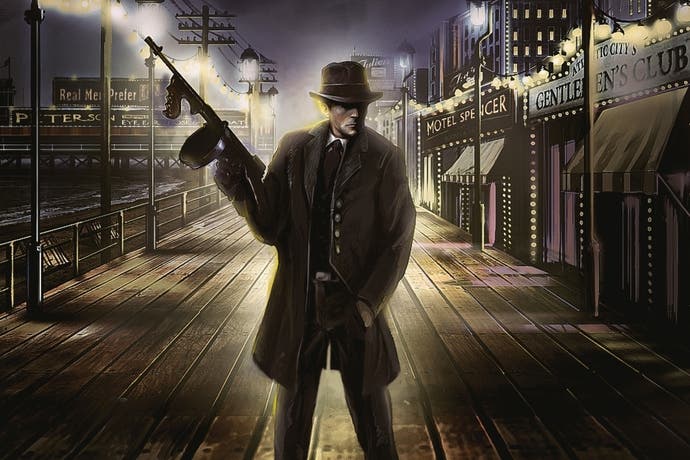Omerta: City of Gangsters review
Mob deep?
I've come to realise that I'm a fan of Haemimont Games. This realisation caught me off guard, as the Bulgarian developer has never made a game that could honestly be described as "great", but it does specialise in the sort of endearingly charming C-list fare that can smuggle fun gameplay and quirky ideas inside slightly ramshackle code. This is the studio behind the breezy Tropico 4 and the daft but likeable The First Templar.
When I saw that Haemimont had made a strategy game about gangsters, I actually got a little frisson of excitement. I knew the presentation would be patchy, the mechanics a little clunky, but I also felt sure there'd be a hearty serving of entertainment lurking underneath.
Oh, Haemimont. You've broken my heart.
Omerta: City of Gangsters is patchy and clunky, but it's also dull and frustrating. In its best games, Haemimont has always kept a tight grip on the fantasy being sold. If you're a tinpot dictator in Tropico, it indulges the concept by letting you behave like, well, a tinpot dictator. In Omerta, your rise to gangland power is one of bland accounting, drab real estate deals and occasional flurries of awful combat. At no point do you feel like a gangster. The reality of the game doesn't just undersell the fantasy, it actively undermines it.
It all starts out reasonably well, too. You create your aspiring immigrant crimelord by picking a face, various traits and a little bit of backstory. All these really do is massage various stats. How will having more "guts" help you? What benefits will "muscle" bring? You don't know, and chances are that by the end of the game you won't be any the wiser.
From there, you begin your rise to power in 1920s Atlantic City, starting from a shabby boardwalk district all the way up to the heart of the city itself. Since the city already exists, it's a game of expansion rather than construction. There are buildings on the map that you can buy, with some designated as "premises" and others as "joints". In the simplest example, you use premises to set up a brewery or distillery, then open a speakeasy in a joint in order to shift the booze. Money rolls in, allowing you to buy more locations.

Except, very early on, you run into one of the game's most crippling limitations. There is only a fixed number of premises and joints on each map. Some are already built and some exist as vacant lots that can only be converted for specific purposes, such as a casino or a lawyer's office, but it makes no difference. You can't build more than have been allotted, nor can you change premises into a joint or vice versa. You get what you're given, which rather flies in the face of the gangster credo of taking what you want.
More baffling: you can only find useful buildings by meeting the requirements of informants. Each campaign mission inevitably becomes more of a puzzle game than a strategy game: how can you get what you need to bribe the informants to fill in the usable locations on the map, and then how do you achieve your fixed and inflexible objectives using the stringently limited resources you have?
There are other features on the map, but these either run into the same problem or fail to go deep enough to compensate. There are other businesses, whose services you can use, leading to a "warm" relationship. You'll also earn favour if you start a business that complements theirs. Nightclubs like it when you set up a new bootlegging operation, but other booze-makers will grow cold. You can buy out these businesses but, once again, the game misses the point. You can only take over a business if the owner is "warm" towards you, since the gangsters of this game are apparently very polite.
Even more bizarre, everything you do must be done manually. Even when it's something that should logically be possible over the phone, you still end up sending your avatar - or one of a handful of unlockable henchmen - physically running around the map to get things done. They don't even use cars. For every decision you make, there's an interminable pause while a stick figure hurries to the location, then another pause while they go inside and have a conversation. Even when you're supposedly a big crime boss, your empire always consists of six people, running around on foot. Again, the gangster fantasy takes a beating.
There aren't even any rival gangs trying to expand on the same turf. You're on your own, and the only persistent threat comes from your wanted level. This rises whenever you do something shady - especially anything violent - and should it reach five stars, an investigation is triggered. At this point you can bribe the detectives for a stupidly small amount, frame another business for your crimes, or attempt to steal the evidence against you.

Wherever you turn, there are features that run into an inexplicable dead end as the game shuts off interesting avenues for no apparent reason. Nowhere is this more evident than in the laughably titled "Sandbox" mode. With all gameplay objectives removed, the game is literally lifeless - a paper-thin fake city block where the only thing to do is buy every building and amass huge sums of money. Unless you play like an absolute idiot, it very quickly becomes a game that essentially plays itself. You actually have to provoke the game to act against you in order to get any challenge.
All of this pales alongside the sheer horror that is the game's combat, however. As you progress through the story, you'll be forced into situations where you have to fight other gangsters or cops. Here the game shifts into a rudimentary XCOM-style turn-based system, in which you use movement and action points to navigate around and shoot the other guys.
It's terrible. Oh, sweet Jesus, it's terrible. Not amusing low budget wonkiness. Just straight-up terrible gameplay.
Where to begin? How about the poorly tuned dice-rolling system that means a character can unload a shotgun into someone standing right next to them and miss completely? How about the utterly random cover system that only allows you to be protected in very specific spots but then places those spots in illogical places? One side of a crate offers cover, the other side may not. Often, the side that offers cover is the side actually facing the enemy.
That's assuming the cover works at all. More often than not, enemies shoot you through walls regardless of whether you're in cover or not. Victory in these combat scenarios is only partly down to skill, and relies far too much on the random chance that the game's idiotic quirks will work in your favour and not against you.

It's saying something that whenever the option came up to choose a combat engagement or pay some steep financial penalty to get out of it, I gladly handed over the virtual dollars. That's not how gangsters are supposed to work.
As a final cruel twist of the knife, the game's multiplayer mode simply consists of four fixed combat scenarios - two competitive, two co-operative. If you harboured dreams of battling your friends for control of a city, look elsewhere.
In its own way, Omerta is as disappointing to me as whatever blockbuster failed to live up to your expectations. There's potential here, and the moments when the game comes close to realising this potential are perhaps the cruellest. These moments come when a campaign map offers enough leeway for you to actually engage with its systems and build a self-contained empire. The need to distinguish between dirty money and clean income hints at depths that never appear. Then that mission ends, you're dumped on a new map, all benefits of your previous success magically erased as you start over from scratch again.
I'd gladly suffer through Omerta's jittery animations, its frankly bizarre accents and its crudely looped music cues if there was an actual game inside. There isn't. There's a wisp of a resource management sim that crumbles to dust long before the elongated story mode grinds to a halt, and turn-based combat that ranks among the worst the genre has ever seen. Sorry, Haemimont. On this one, you sleep with the fishes.

